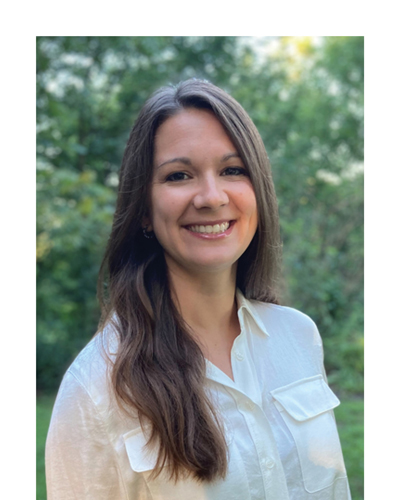Stephanie Hess Named Director of the Division of Research Safety

August 16, 2022
Dr. Stephanie Hess has been named Director of the Division of Research Safety (DRS) at the University of Illinois Urbana-Champaign, pending approval from the Board of Trustees. Hess has been serving as Interim Director since December.
A member of the DRS team since 2013, Hess joined Illinois after completing her PhD in organic chemistry at MIT. As DRS Associate Director and Chemical Hygiene Officer, she led the comprehensive laboratory audit program, chemical safety programs, and efforts to develop online safety training (including COVID training) for campus.
Since joining DRS, Hess has been an advocate for partnership and collaboration with faculty students, and research staff—and with other campus units focused on workplace safety— to support research and innovation across the university.
“Dr. Hess fully understands the importance of environmental health and safety for all members of our community and the major role that DRS has in protecting and serving the campus. Her record of service and experience across a broad portfolio of safety responsibilities make her a perfect choice for this role,” said Executive Associate Vice Chancellor for Research and Innovation Jan Novakofski. “I have great confidence that Stephanie will continue working closely with leadership, faculty, and students across the campus to provide outstanding direction and management of campus safety.”
Efficient and effective safety programs are an integral part of the research enterprise and university operations, and it is an honor to collaborate with researchers and staff to solve problems and facilitate safe work across campus.”
—Stephanie Hess, Director of the Division of Research Safety
DRS works with dozens of campus units and facilities and oversees programs that include laboratory safety, hazard communication, radioactive and biological materials, hazardous waste disposal, and more. Among other priorities, Hess plans to develop additional programming to enhance safety for field researchers, and in partnership with the Division of Safety and Compliance at Facilities and Services, strengthen environmental health and safety support for all faculty, staff, and students on campus.
“It is so important that our safety professionals never lose sight of the bigger picture—that the university's success lies in its strengths of education and innovation,” said Hess. “Efficient and effective safety programs are an integral part of the research enterprise and university operations, and it is an honor to collaborate with researchers and staff to solve problems and facilitate safe work across campus.”